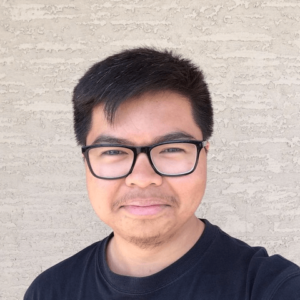Karl Narvacan – Studentship – 2016
Karl Narvacan is a Medical Student at the University of Alberta.
Karl’s project has been generously supported by a gift from the Taite Boomer Foundation
About the Research
About Karl in his own words…
 Being awarded a Brain Tumour Research Studentship gives me a tremendous opportunity to pursue my passion in clinical neuro-oncological research during the summer. This scholarship will allow me to work with some of the leaders in brain tumour pathology in the university, who work tirelessly in improving the efficiency and accuracy of the health care approach surrounding brain tumour diagnoses.
Being awarded a Brain Tumour Research Studentship gives me a tremendous opportunity to pursue my passion in clinical neuro-oncological research during the summer. This scholarship will allow me to work with some of the leaders in brain tumour pathology in the university, who work tirelessly in improving the efficiency and accuracy of the health care approach surrounding brain tumour diagnoses.Project Update
The purpose of the study was to develop and evaluate a new analytical method in performing copy number variation (CNV) analysis through the novel nCounter technology to aid in the classification, therapeutic management and prognosis of diffuse brain tumours.
The first phase of the project was obtaining tissue samples, preparing them for analyses, followed by processing with nanoString nCounter technology. This required myself to shadow and be part of the laboratory team in Molecular Pathology under Dr Izevbaye, where Fluorescence In-Situ Hybridization (FISH) is performed on tissue samples. Being part of the diagnostics lab allowed me to learn about the technology that is used in FISH, and learn how to contrast the process with the nCounter technology in looking at copy number variations in specific genomic loci. Read more…
Final Report
Our results support previous data from our group that copy number variation analysis by novel nCounter technology is a comparable alternative to the standard Fluorescence In Situ Hybridization (FISH) technique. Based on our results, detection of EGFR amplification is highly specific and is thus able to minimize false positives in molecularly diagnosing glioblastomas. Further, detection of 1p/19q deletion shows promising results, with 100% sensitivity, enabling FISH to minimize false negatives in predicting increased tumor chemosensitivity. Further assay optimization is necessary to improve false positive rates in the detection of chromosomal arm deletions and false negative rates in genomic amplification.
About my experience
Being awarded a Brain Tumour Foundation of Canada Research studentship has been a huge honour. As a curious medical student trying to make contributions to medicine, being recognized and empowered to conduct research has had significant impact in my education so far. This project has immensely improved my ability to think scientifically, plan out experiments and be independent yet responsible in moving “my” project forward. There have been several roadblocks in this project, but that is something every researcher—much so students like me—encounters. But learning from our mistakes is integral to our growth as aspiring clinician-scientists. Not everything will turn out perfectly; not everything will always go our way. Realizing that early on in our training makes us adaptable and resilient, characteristics that are vital to someone aspiring to have a career in healthcare.
My sincerest gratitude goes to my supervisors Dr Frank van Landeghem and Dr Iyare Izevbaye from the Department of Laboratory Medicine and Pathology for their support, teaching and mentorship. Special mention goes to Kim Formenti within the Department, whose help was critical in the completion of this project. Lastly, my heartfelt gratitude goes to the Taite Boomer Memorial Brain Tumor Foundation and Brain Tumour Foundation of Canada, whose unwavering support to education and research is critical in the fight against brain tumours. Thank you all.